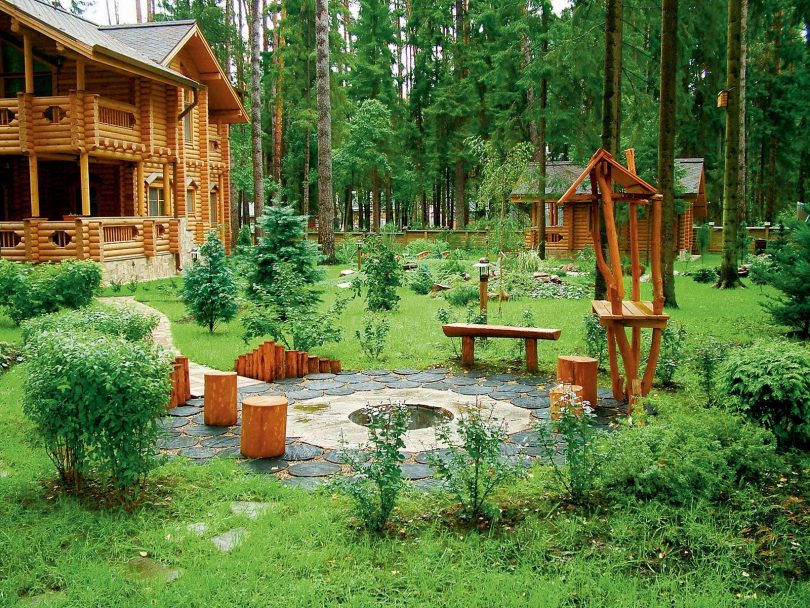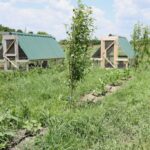For many homestead dreamers, the idea of cultivating a flourishing mushroom farm on their 15 acre homestead is both exciting and rewarding. Whether you’re an experienced farmer or just beginning your journey into sustainable living, growing mushrooms can be a fulfilling way to utilize your land effectively. In this guide, we’ll explore the steps to successfully grow mushrooms on your homestead, providing tips and insights to ensure your venture is both productive and sustainable.

Understanding Mushroom Cultivation
Before diving into the process of growing mushrooms, it’s essential to understand what mushroom cultivation involves. Unlike traditional crops, mushrooms are fungi, meaning they have different requirements for growth. They thrive in moist, dark environments, making them perfect for indoor cultivation or shaded areas on your homestead.
Types of Mushrooms to Grow
Choosing the right type of mushroom is crucial. Some popular varieties for homesteads include shiitake, oyster mushrooms, and button mushrooms. Each type has unique growing conditions and space requirements, so it’s essential to research which type best suits your land and climate.
Preparing Your Homestead for Mushroom Growing
While mushrooms can be grown in various environments, homesteaders need to prepare their land accordingly. This involves selecting an appropriate site, preparing the soil, and ensuring there is adequate shade and moisture. For those who prefer indoor cultivation, considering a dedicated indoor workshop can be beneficial. Learn more about indoor workshops for mushroom growing.
Site Selection
Choosing an appropriate site on your 15 acre homestead is vital. Ideally, mushrooms should be grown in areas that offer shade and protection from harsh weather conditions. For outdoor cultivation, consider constructing a shaded area or utilizing natural tree cover.
Soil Preparation
Although mushrooms don’t grow in traditional soil, preparing the substrate is essential. This involves using a combination of organic matter, such as straw or sawdust, and ensuring it is properly sterilized to prevent contamination.
Steps to Successfully Cultivate Mushrooms
Once your site is prepared, follow these steps to cultivate mushrooms:
1. Inoculating the Substrate
Inoculation involves introducing mushroom spores or spawn into the prepared substrate. This process is crucial as it determines the success of your mushroom crop. Ensure you follow the instructions specific to the mushroom species you are growing.
2. Maintaining Optimal Conditions
For mushrooms to thrive, maintaining the right conditions is essential. This includes monitoring humidity, temperature, and light exposure. Regularly misting the substrate and maintaining a consistent temperature will promote healthy growth.
3. Harvesting Your Mushrooms
Depending on the type of mushroom, harvesting can occur within a few weeks to a few months. It is crucial to harvest at the right time to ensure the mushrooms are at their peak flavor and quality.
Benefits of Mushroom Growing on a Homestead
Engaging in mushroom cultivation on your homestead offers numerous benefits. Not only do mushrooms provide a nutritious food source, but they also contribute to the biodiversity of your farm. Additionally, mushrooms can be a lucrative addition to your homestead business.
Health Benefits
Mushrooms are rich in vitamins, minerals, and antioxidants, making them an excellent addition to a healthy diet. Incorporating homegrown mushrooms into your meals ensures you consume fresh and organic produce.
Economic Benefits
With the growing demand for organic and locally sourced produce, selling mushrooms can be a profitable endeavor. Farmers’ markets, local grocers, and online platforms are excellent avenues to sell your crop.
Environmental Impact
Mushroom cultivation is a sustainable practice that can positively impact the environment. It promotes soil health, aids in waste reduction, and contributes to the ecological balance of your homestead.
Overcoming Challenges in Mushroom Growing
Like any agricultural endeavor, mushroom growing presents challenges. Common issues include contamination, pest infestations, and fluctuating environmental conditions. Addressing these challenges requires diligence, proper planning, and ongoing learning.
Contamination Prevention
Contamination is a prevalent issue in mushroom cultivation. Ensuring your substrate is properly sterilized and maintaining a clean growing environment can mitigate this risk.
Pest Management
Pests such as insects and rodents can threaten your mushroom crop. Implementing natural deterrents and maintaining proper sanitation can help protect your investment.
Conclusion
Growing mushrooms on a 15 acre homestead offers an enriching experience that combines science, sustainability, and satisfaction. By understanding the fundamentals of mushroom cultivation and preparing your land accordingly, you can enjoy a thriving crop that benefits your health, finances, and environment.
For those interested in expanding their homestead projects, consider exploring freezer planning and other sustainable practices to complement your mushroom growing activities.

FAQs
Can mushrooms be grown indoors?
Yes, mushrooms can be successfully grown indoors, provided the environment is controlled for humidity, temperature, and light. Setting up an indoor workshop is a great way to manage these conditions.
What is the best substrate for mushroom growing?
The best substrate varies depending on the mushroom species. Common substrates include straw, sawdust, and coffee grounds, each offering unique benefits.
How often should mushrooms be watered?
Mushrooms require a consistently moist environment. Regular misting is recommended to maintain the necessary humidity levels for optimal growth.
For more information on homestead living, visit this guide on choosing land for your homestead.





